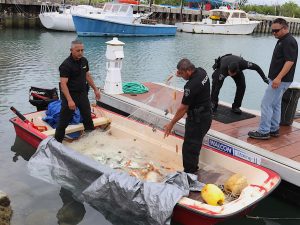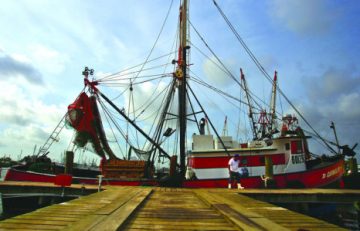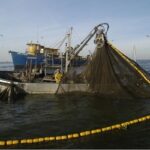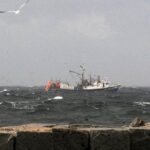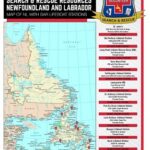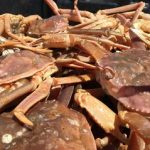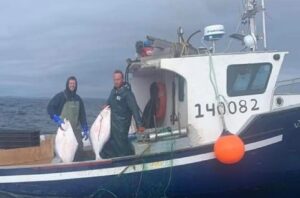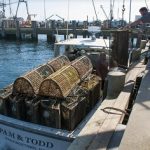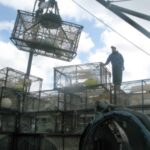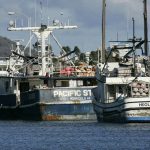Monthly Archives: July 2018
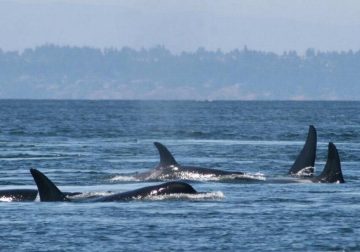
Premier Horgan sends letter to federal Fisheries Minister urging discussions over fisheries closure
B.C. premier John Horgan is urging the Federal Fisheries Minister to meet to discuss problems with using fishing bans to boost Chinook salmon stocks to protect the 75 remaining Southern Resident orcas. The closure of salmon fisheries in areas including parts of Juan De Fuca Strait from Sooke to Port Renfrew, the southern Gulf Islands and the mouth of the Fraser River took effect on June 1st. Details vary for each area, but in many cases, recreational fin fishing is completely banned in the areas until Sept. 30, while commercial fishing for all salmon is banned. It is possible the fisheries closures could be extended to more coastal areas on Vancouver Island. >click to read<10:22
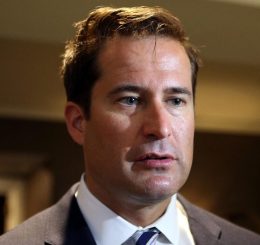
Moulton votes no on H.R. 200
U.S. Rep. Seth Moulton voted against the House bill to reauthorize the Magnuson-Stevens Act on Wednesday because the bill undermines efforts to improve the science used to generate stock assessments and pits fishing stakeholders against each other, the congressman said in a statement Friday.,,, “Over the past three years and through numerous conversations with fishermen, scientists and environmental groups, one thing has been made abundantly clear: We need to improve the science behind our federal stock assessments,” Moulton stated. “The reauthorization of Magnuson-Stevens undermines our efforts. We need everyone on the same page. We all want sustainable fisheries for today and future generations and we shouldn’t have to pit one group of fishermen against another to achieve that.”>click to read<09:04
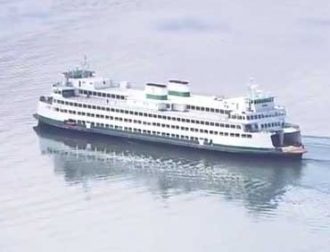
Washington State Ferries vs crab pots: The price of the conflict
The summer season is a very busy time for the Washington State Ferries when several million people are expected to catch a boat. But it is also a busy time for crab fishermen. However, improperly set crab pots can halt ferry travel. “We actually had five ferries damaged by crab pots. Two of them were only superficial damage and it only took them out of service for a few hours,” Captain Scott Freiboth from the Washington State Ferries. “We used a submersible remote-controlled robot to asses that damage and were able to repair them almost immediately. The other three vessels were pulled from service which cut into our available ferries.” >click to read<21:07
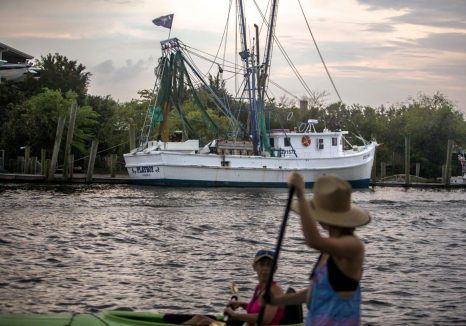
Shem Creek’s Wando dock up for sale, one of last for area shrimp boats
One of Shem Creek’s last remaining shrimp boat docks is quietly up for sale. The loss of the Wando dock could be the tipping point for the vanishing fleet in the creek made famous by its hanging nets. The Wando dock is one of the last three commercial docks mooring shrimp boats that are a picturesque hallmark of the creek. Five boats now tie up there — about half the fleet that once existed. In previous years, it was common to see shrimp boats tied off three or more abreast and their catch sold from the docks. Losing it could mean those boats would have nowhere else to tie off, much less sell their shrimp. It also could put more development pressure on the owners of the other two. >click to read<19:32
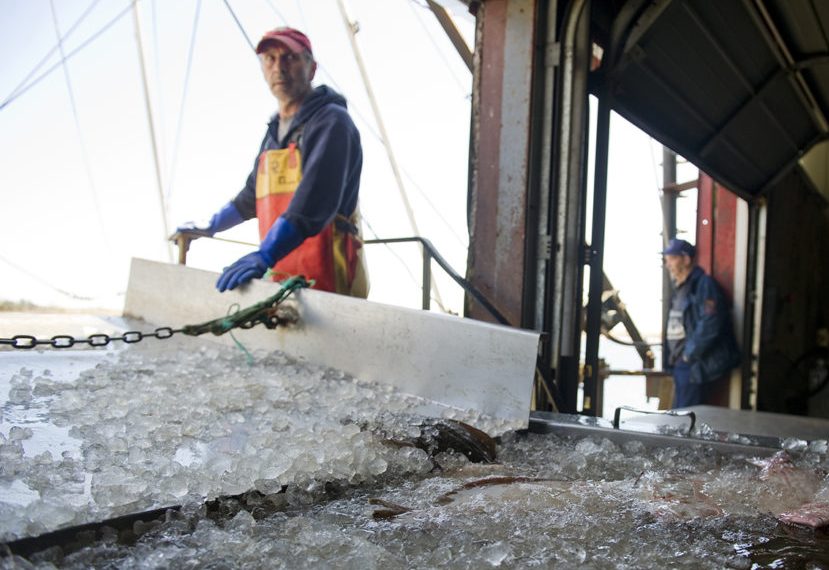
Seafood Processing: How robots can help local fisheries
New England is known for being an excellent source of lobster and other seafood. But while fishing is done locally, much of the processing is outsourced to other countries.,,, Northeastern University professor Taskin Padir is hoping to change that. He was selected to lead a new project to bring collaborative robots developed at the university into processing plants at America’s busiest fishing port, located in New Bedford, Massachusetts. The goal, he said, is to increase production and efficiency, keep workers safe, and stimulate local job growth. Called Collaborative Robotics to Foster Innovation in Seafood Handling, or the FISH project, this is one of 14 robotics-related challenges recently announced Advanced Robotics for Manufacturing (ARM). <click to read<17:09
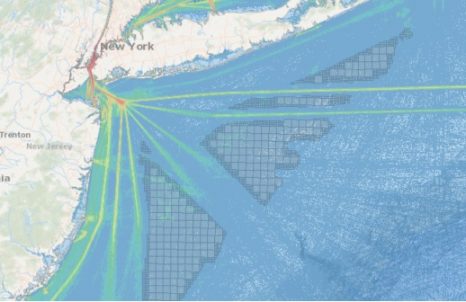
East End forum on potential offshore wind turbine sites turns tense
A public forum on potential offshore wind farm sites turned tense as East End commercial fishing representatives railed against the renewable energy source and its potential impact on their industry. The forum, held Wednesday at the Montauk Community Center, was dominated by commercial fishermen who largely said none of the proposed sites were fitting. “These should be removed off our fishing grounds completely,” said Bonnie Brady, executive director of the Long Island Commercial Fishing Association. Those who spoke declined to suggest the western sites as appropriate, saying they didn’t want to hurt colleagues’ livelihoods either. >click to read<13:56
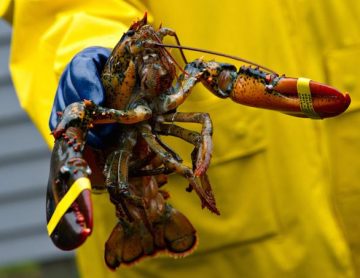
The secret life of lobster (trade): Could we be in hot water?
In a paper published in Frontiers in Marine Science, researchers, including lead author Joshua Stoll of the University of Maine School of Marine Sciences and the Mitchell Center for Sustainability Solutions, map the global trade routes for lobster and quantify the effect they have on obscuring the relation between those who catch the valuable crustacean and those who ultimately eat it. The team’s findings indicate that in today’s hyper-connected world, a growing number of nations are acting as “middlemen” in the supply chain. This makes it increasingly difficult to trace where seafood goes and difficult to anticipate changes in market demand. >click to read<10:30
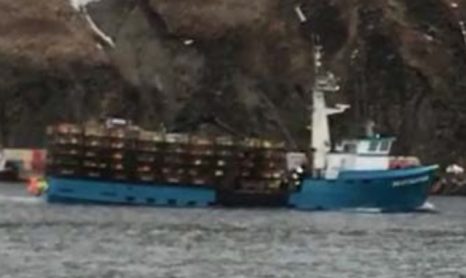
NTSB Says Icing Caused Fatal Sinking of FV Destination in Bering Sea, issues related Safety Alert
The National Transportation Safety Board has issued a marine accident brief >click to read<and a related safety alert>click to read< warning mariners of the dangers of icing following the agency’s investigation of the sinking of the fishing vessel Destination in the Bering Sea last February with the loss of all six crew members. The 110-foot, 196-gross ton, fishing vessel Destination sank in frigid, remote waters 2.6 miles northwest of St. George Island, Alaska, on February 11, 2017. >click to read<09:36
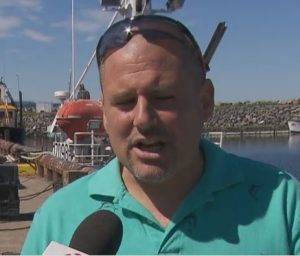
Poachers stealing lobsters from traps off Sainte-Anne-des-Monts in the Gaspé
A pilot project to determine the viability of lobster fishing near Sainte-Anne-des-Monts, off the north coast of the Gaspé Peninsula, is being bedeviled by whoever is stealing lobsters from fishermen’s traps. Four fishing boats — two belonging to the Malecite Nation and two to non-Indigenous fishermen — have been authorized by Fisheries and Oceans Canada to catch lobsters in the area this season. It’s part of an “exhaustive scientific process” Fisheries and Oceans is carrying out to determine whether lobster fishing in the area is sustainable, said Guy-Pascal Weiner, commercial fisheries co-ordinator for the Malacites in Cacouna, near Rivière-du-Loup. >click to read<08:41
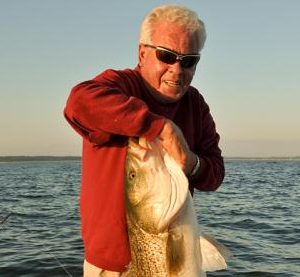
At 75, Capt. John Rade Still the ‘High Hook’
A survey probably isn’t needed, but if you ask just about any experienced fisherman who shuffles along in his or her weathered oilskins and deck boots among the well-used docks and boats of Montauk Harbor who is the king of rod-and-reel commercial fishing (a “pinhooker” in local slang), most are likely to agree that John Rade, better known as Johnny, is the one who wears the crown. The legend of Captain Rade’s unique ability to catch fish runs long and deep, more than half a century on the water to be precise, and at the age of 75, he is still at the top of his game. In commercial dockside talk, he is “high-hook” for the large catch of fish he packs out for market almost every day in season. >click to read<08:02
“We have Fishermen in my District Fighting to Survive.” Rep. Zeldin House floor speech in support of Long Island fishermen
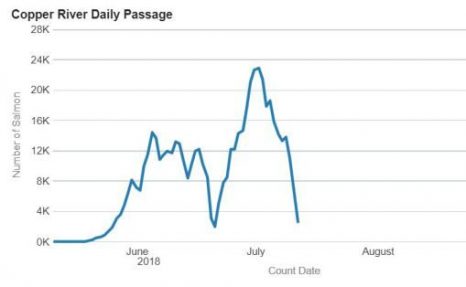
Copper disaster
No sooner did the burst of sockeye salmon into the Copper River begin than it was over. With the famous salmon river in eastern Alaska again falling behind projected daily returns, the Alaska Department of Fish and Game announced today that a Thursday through Sunday opening of the popular personal-use dipnet fishery will likely be the year’s last. The weak sockeye run has now turned into a disaster for almost everyone. Cordova commercial fishermen off the mouth of the river caught only 26,000 of the highly valuable sockeye in three short openings in May before they were shutdown for the year. >click to read<20:33

Broken Promise? – Thiele And Lavalle call on N.Y. State to keep Promise, File Legal Action Against Inequitable Federal Fishing Quotas
Assemblyman Fred W. Thiele, Jr. and State Senator Kenneth P. LaValle today called upon New York State to keep its promise to the state’s commercial fishermen and bring litigation immediately to strike down the inequitable and discriminatory fluke quotas that are crippling the economic viability of the state’s commercial industry. This week, the State Department of Conservation announced that the fluke fishery would be closed in state waters until the end of the month and would then re-open with a paltry harvest limit of 50 pounds per day. In 2013, Governor Cuomo visited Montauk and promised to sue the federal government over the state’s low share of the East Coast fluke fishery. That promise was reiterated again by the Governor in late 2017. This spring, instead of bringing litigation, the state filed a petition with the U.S. Department of Commerce protesting the quota. >click to read<17:19

New regulations to protect marine mammals in effect for all coasts in Canada
New regulations to protect whales, dolphins and porpoises are in effect for all coasts in Canada as the Department of Fisheries and Oceans works to ensure more officers and patrol vessels are available to enforce the rules.,,, The regulations include the requirement to report to the Fisheries Department any incident of a vessel accidentally striking a mammal or when it becomes entangled in fishing gear, Cottrell said. Under the Fisheries Act, anyone who disturbs marine mammals could be fined up to $100,000 or a maximum of $500,000 for a criminal offence, Cottrell said. >click to read<14:38
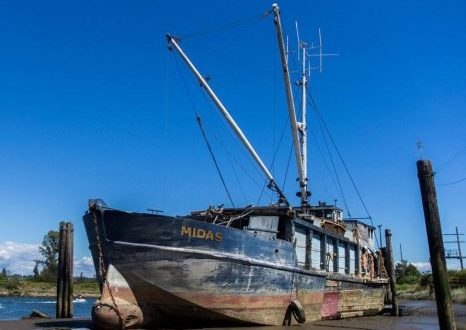
An old boat with a prosperous past awaits a future afloat
For decades, the Midas was a commercial fishing vessel that ventured between Alaska and Washington. It was like a middle man, purchasing fish from boats at sea and selling it at ports in Seattle, Juneau, Ketchikan or wherever else the market called. The Midas had a prosperous past. In 1987, it sold for more than $4 million. Today, the 100-footer is far removed from its glory days. It looks haggard on a muddy bank near the I-5 bridge over the Snohomish River between Marysville and Everett.,, Richard Cook, 46, bought the boat in November. He said he bought it so his father could fish in Alaska. >click to read<13:58
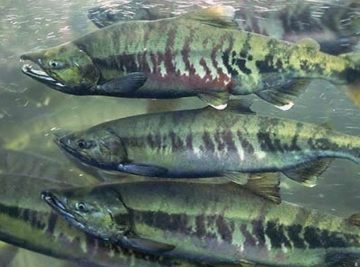
Prince William Sound commercial catch tops 3.5M fish
Commercial harvests in Prince William Sound have reached 3.5 million salmon, even as the surge in the catch in late June slowed somewhat in early July. Through June 10 fishermen delivered to processors an estimated 2,450,601 chums, 1,022,779 sockeyes, 18,461 pinks, 7,829 Chinooks and 459 silvers. Drift gillnetters in the Coghill district alone have brought in over 1.8 million fish, including an estimated 1.7 million chums, 155,704 reds, 1,959 humpies, 386 kings and 94 silvers. Purse seiners in the Montague district had,,, Statewide harvest updates provided by the McDowell Group in Juneau for the Alaska Seafood Marketing Institute show that through June 10 nearly 28 million salmon have been delivered to processors. >click to read<12:55
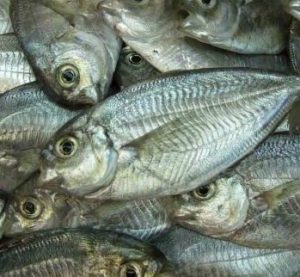
House kills Rhode Island’s push to join mid-Atlantic fishery council
The House on Wednesday rejected a push from Rep. Jim Langevin to let his state join the Mid-Atlantic Fisheries Management Council, which regulates several species of fish that are caught mostly by fishermen from Langevin’s home state of Rhode Island. The amendment would have added two seats on the 21-seat council for the state of Rhode Island. But after explaining why his state should join the group, the House rejected Langevin’s amendment in a voice vote, and Langevin, a Democrat, didn’t demand a recorded vote. Langevin also pointed out a precedent on the issue in North Carolina, which was added to the council in 1996 for similar reasons. >click to read<12:14
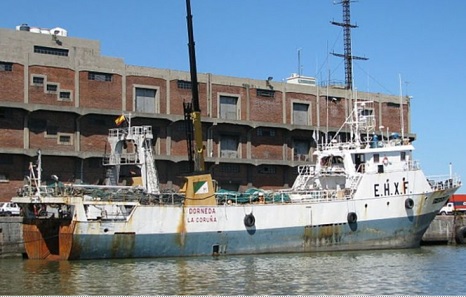
Spanish fishing boat “Dorneda” sinks in Argentine Waters, twenty-five crewmembers rescued, one missing
A Spanish fishing trawler sank in rough weather off Argentina’s coast and at least one crewmember died, Argentina’s Navy said Wednesday. Twenty-five crewmembers were rescued and one was missing. The Navy issued a statement saying it was alerted Tuesday night that the Dorneda was in trouble. Early in the morning, the Spanish fishing trawler Farruco found two life rafts and a lifeboat with crewmembers from Spain, Peru, Morocco and Indonesia aboard. The British-flagged Beagle I also participated in the rescue and was taking the survivors,,, >click to read<09:51
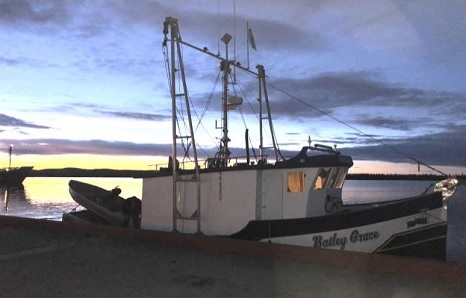
Shrimp boat crew saves 2 men after float plane crash
Two men are said to be in good shape and good spirits after the float plane they were in crashed during landing in the water near the government dock in Happy Valley-Goose Bay Wednesday evening. They were rescued from the water by some nearby shrimp fishermen. “We got within about a hundred yards [91 metres], I’d say … or maybe closer when the first feller popped up on the pontoon,” said Chris Lethbridge, who was aboard the boat that went out to save them. “[They’re] very lucky the boat was here.” The shrimp fisherman just happened to be staying on their boat Bailey Grace overnight so they could get an early start Thursday morning. >click to read<08:15
House of Representatives – Debate and Passage of HR-200
July 11, 2018 House Session The House meets with debate scheduled on a fisheries management bill sponsored by Rep. Don Young of Alaska. >click to watch<20:52
House votes to overhaul fishery management law – “I’m proud to say that my bill protects our commercial and recreational fisheries’ interests and allow councils to do their jobs in a more streamlined and effective manner,” Rep. Don Young (R-Alaska), the bill’s sponsor, said on the House floor. >click to read<21:41
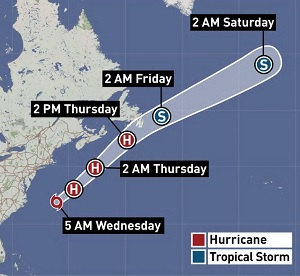
Hurricane Chris heads toward Newfoundland
Environment Canada updated its forecast for Chris Thursday afternoon, with a warning that heavy rain, strong winds, significant waves and storm surges could hit coastal areas of the island on Thursday. Between 40 and 70 millimetres of rain is now forecast for the northeast Avalon Peninsula — which includes St. John’s and several suburban towns — while about 30 to 40 mm are possible for the southeast Avalon. Chris is expected to be a post-tropical storm by the time it arrives Thursday. Right now, it’s expected to pass well under Nova Scotia, then slowly weaken as it moves toward the Avalon Peninsula as a post-tropical storm late Thursday evening. >click to read<
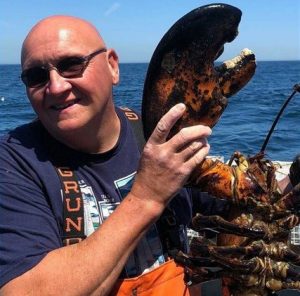
Twenty-five pound, 100 year old lobster caught off Maine coast
Too big for even a trap, a 25-pound lobster required some serious muscle to pull it out of the ocean off the coast of Phippsburg. Lobsterman Eric Wallace caught the monster male crustacean that he estimates to be at least 100 years old. Lucky for Wallace, the Moby Dick-sized lobster snagged his giant claw in the rope of Wallace’s trap resulting in the brief capture. In the state of Maine, lobsters’ backs must measure more than 5 inches to be kept. >click to read< 15:45
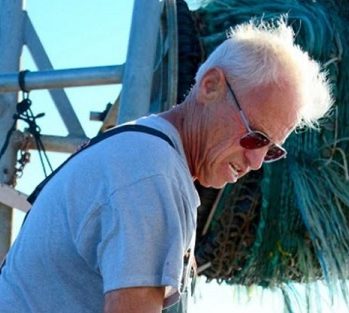
NYDEC halts commercial fluke fishery for about two weeks, sets harvest limit
New York State will close its commercial fishing grounds, a staple of the Long Island fishing fleet, for about two weeks effective Sunday. The closure, which applies to fishing in state waters up to 3 miles from shore, will last until month’s end, when it reopens with a harvest limit of 50 pounds per day. Local commercial fishermen, who dealt last month with a similar closure of another plentiful staple in New York waters of black sea bass, say the closure is another blow to their livelihood at a time of pricing stresses and amid state pressure to ease federal restrictions. “It really hurts us,” said Phil Karlin,,, >click to read<13:46
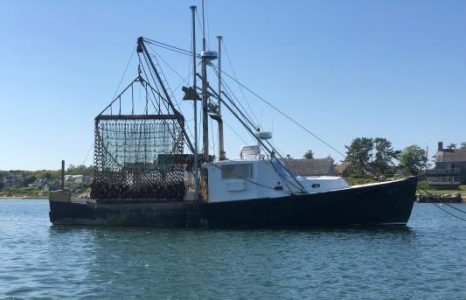
Athearn Marine Agency Boat of the Week: 42′ Bruno Dragger,Lobster,Scalloper, CAT 3306
Specifications, information and 8 photos >click here< To see all the boats in this series, >click here<12:19

Gulf shrimp season opens Sunday in state and federal waters while shrimp boats will set out lacking workers
Tuesday’s blessing-of-the-fleet event at the Brownsville Shrimp Basin felt similar to the one a year ago, with a sermon from Father Mark Watters and an issue over the shortage of workers. After facing a slight scare of almost not making it to Brownsville, Watters said his 13th year blessing the Brownsville-Port Isabel shrimp fleet was not only a number, but a message of multiplication of double profusion.“Now, 13, in the kingdom of heaven, that number, when you see it in scripture, what the enemy has stolen and made people superstitious about is actually a kingdom number that equates to double profusion,” he said. Still, the shortage of foreign workers will remain a challenge the shrimp industry has to overcome. >click to read<10:56
Roughly 150 Boats Take Part in ‘Blessing of the Fleet’ – The executive director of the Texas Shrimp Association says, however, a shortage U.S. citizen and foreign workers will cost the industry an estimated $700,000 per day this year. Video,>click here<
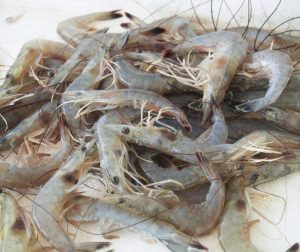
UGA researchers dive into a sea of questions
Captain Wynn Gale knew it was bad. He’d been commercial fishing off the coast of Darien, about 50 miles south of Savannah, since he was 12, and his decades of shrimping told him the industry was in trouble. Again..,,, But this time, off the coast of Georgia in the 1990s, there weren’t as many shrimp to catch, and the ones Gale and other commercial fishermen were pouring onto the decks of their boats had something wrong with them. They weren’t flopping around like normal; in fact, they barely moved. And their gills were black, a stark contrast to the milky clear color of Georgia’s famously sweet white shrimp. >click to read<09:43
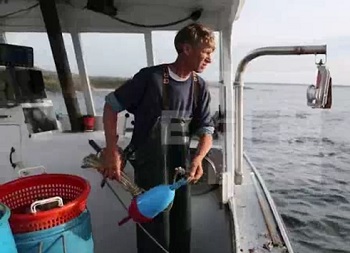
Lobster-Hauling off Maine Becoming a Less Popular Livelihood
Chipper Zeiner has been hauling American lobsters off the East Coast of the United States since 1973, when he was just 11 years old, but in recent years he has noticed a decline in the number of people taking up the practice to earn a living. Chipper, who has about 600 pots in various sections of the waters off the coast of Maine, heads out into the Atlantic Ocean at 6 am six days a week, hauling in about 200 lobsters each day. “You have to love it to do it. If you don’t love it you won’t be doing it for long. Many kids today won’t do it, it costs too much to get into it,” Chipper said. >click to read<, video, photo’s, >click here<08:39









